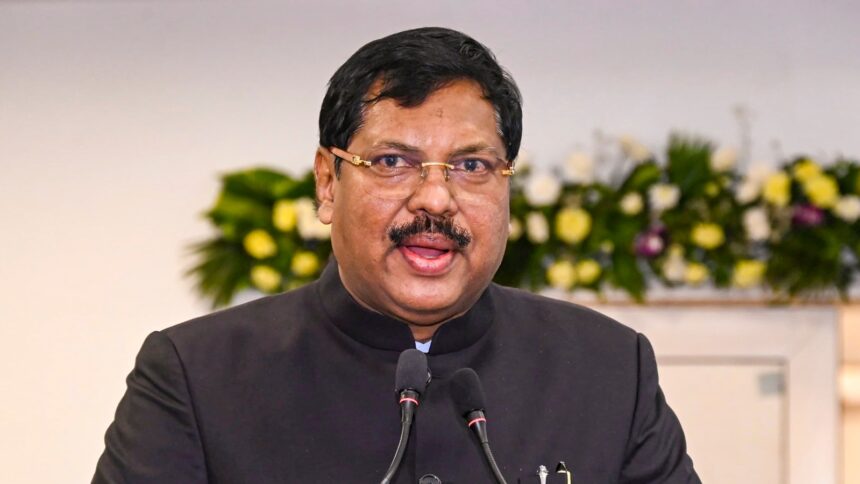Making clear he has decided not to accept any post-retirement role or position from the government, Chief Justice of India B R Gavai has said that judges taking up government appointments “immediately after retirement” or resigning to contest elections “raises significant ethical concerns and invites public scrutiny”.
He was speaking at a roundtable Tuesday at the UK Supreme Court, hosted by Lord Reed of Allermuir, President of the UK Supreme Court.
Explaining how the Collegium system of appointing judges to constitutional courts came into being, CJI Gavai, while acknowledging that “there may be criticism of the Collegium system”, said “any solution must not come at the cost of judicial independence”. He sought to underline that “judges must be free from external control”.
Referring to the debate around judges accepting post-retirement jobs, the CJI said “if a judge takes up another appointment with the government immediately after retirement, or resigns from the bench to contest elections, it raises significant ethical concerns and invites public scrutiny”.
He said “a judge contesting an election for a political office can lead to doubts regarding the independence and impartiality of the judiciary, as it may be seen as a conflict of interest or as an attempt to gain favour with the government”.
He said “the timing and nature of such post-retirement engagements could undermine the public’s trust in the judiciary’s integrity, as it could create a perception that judicial decisions were influenced by the prospect of future government appointments or political involvement”.
“In light of this, many of my colleagues and I have publicly pledged not to accept any post-retirement roles or positions from the government. This commitment is an effort to preserve the credibility and independence of the judiciary,” he said.
The CJI admitted that “there have been instances of corruption and misconduct that have surfaced even within the judiciary,” and said “such occurrences inevitably have a negative impact on public confidence, potentially eroding faith in the integrity of the system as a whole”.
He said “the path to rebuilding this trust… however… lies in the , decisive, and transparent action taken to address and resolve these issues” and “in India, when such instances have come to light, the Supreme Court has consistently taken immediate and appropriate measures to address the misconduct”.
CJI Gavai also hailed the move to make the assets of Supreme Court judges public. He called it a “significant step to bolster public confidence through transparency… promoting greater accountability and setting an example of ethical leadership”.
He pointed out that “the Supreme Court has itself held that judges, as public functionaries, are accountable to the people” and “the Court maintains a dedicated portal where judges’ declarations are made public, demonstrating that judges are willing to subject themselves to a degree of scrutiny, similar to other civil functionaries”.
He also referred to the live-streaming of Constitution-bench cases as a step to “enhance public transparency” and sought to explain how out-of-context reporting of proceedings can shape public opinion negatively.
“As with any powerful tool, live streaming must be wielded with care, as fake news or out-of-context court proceedings can negatively shape public perception,” he said.
“Only last week, one of my colleagues, in a lighter vein, counselled a junior counsel on the art of court craft and soft skills. Instead, his statement was taken out of context and reported in the media as, ‘Our ego is very fragile; if you offend it, your case will go out’,” he said.
“I would like to say that legitimacy and public confidence is not secured through coercion of command but through the credibility earned by the courts. Any erosion of this confidence risks weakening the judiciary’s constitutional role as the ultimate arbiter of rights. Transparency and accountability are democratic virtues. In today’s digital era, where information flows freely and perceptions are rapidly shaped, the judiciary must rise to the challenge of being accessible, intelligible, and answerable, without compromising its independence,” he said.








